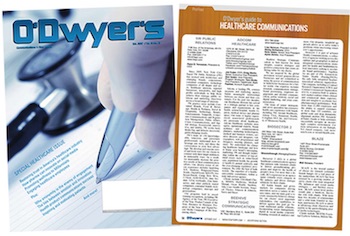|
|
Millennials are a key consumer group that both heritage and emerging brands want to target. Highly educated and holding immense purchasing power, Millennials look to develop loyalty with actively engaged brands that produce quality products.
A Harris Poll survey found that 59 percent of women over the age of 35 believe buying green beauty is important to them, while an even larger percentage of Millennial women — 73 percent, to be exact — seek out cleaner, all-natural products.
Raised by technology, Millennials are exposed to more products and the ingredients inside those products, thus a demand for cleaner, organic, natural products has grown in recent years with social media’s rise.
|
|
With such a competitive marketplace and a savvy consumer, which best practices can beauty brands adopt to market their ingredients to Millennials?
Target the source
Brands must engage with Millennials directly where they hang out. YouTube, Snapchat and Instagram are the most popular social media platforms for Millennials, and it’s where they often do their product research.
Video has become an effective “try before you buy” sales tactic on these platforms, offering potential buyers an inside look as to the product’s ease of use, technique of application and the opportunity to share information on product formulation so buyers can become familiar with specific ingredients and can call these ingredients out by name the next time they go shopping. Devising creative campaigns that capture the attention and create shareable conversation amongst Millennials is crucial for a brand to stand out amid a frequently transforming newsfeed.
A personal connection
For brands to create a personal connection with a customer, it’s important that they consider partnering with influencers. GlobalData has revealed that 63 percent of Millennials are more likely to trust blogger and user reviews over brand claims and influencers are particularly popular in promoting of ingredients and product -reviews.
Beauty brands can seek influencers to share why an ingredient is healthy or how a product’s formulation uses the latest technique that treated their specific beauty needs. Influencers can also highlight the ease of use of products. As Millennials want quick results and are results-driven in their beauty routines and purchasing decisions, and prioritize products that provide results, influencers offer potential buyers the opportunity to quickly see how, the effectiveness and the ease of use of a product prior to purchasing from a trusted source.
Simplicity
As quick as their Twitter feed changes, Millennials are over certain products and on to the next. With a consistent influx of ads and new products, how does a brand stay relevant? Simplicity. Millennials have short attention spans so they want to see a product, know about it and decide whether or not they want to buy it within five minutes of discovery. This means that a brand’s unique selling point must be in the forefront in order to be recognized. Simple backgrounds, color and packaging stand out among the clutter that is social media and often these reign supreme. So, when it comes to packaging and promotion, keep it simple and your message clear.
Transparency
Millennials have immense purchasing power, and brands should be open about the ingredients and process behind the formulation of their products. Today’s trending skin care ingredients are nature-based and Millennials are more likely to base their purchasing decisions on the ingredients listed on the product ingredient label in an effort to avoid toxic ingredients and harmful chemicals.
Customization
Millennials love products that are made specially for them. Companies like Birchbox and FabFitFun have based their business model around the consumer, offering customizable boxes that are delivered directly to your door offering handpicked products based on your wants, needs and likes. Now beauty companies have also adopted these customizable techniques with shampoos and face creams that are personalized with unique-to-you ingredients that provide results based on your needs.
By being open and honest about the ingredients that are present in their products, brands are able to build trust with their customers, as well as familiarize and educate them on the types of ingredients they can trust.
Don’t just stop at the primary audience
With their high levels of influence, Millennials can easily target other consumers. A survey conducted by HRC Retail Advisory revealed that 82 percent of parents admitted that their children have some influence over purchasing decisions. With parents, grandparents and other friends often asking the opinion of their digitally savvy millennial connections, brands should think strategically about how they can tap these markets.
As hundreds of brands seek to capture the Millennial market, it is crucial that they move away from one-way marketing strategies, and capitalize on social media and influencer marketing to garner the attention of an audience that continues to elude advertisers.
The creation of simple, authentic and visual shareable content promoted by influencers is a successful way to empower Millennials. For health and lifestyle brands alike, educating the Millennial about health benefits of a product or service is an important step to creating brand loyalty and customer retention.
***
Lindsey Carnett is CEO and President of Marketing Maven, named to the Inc. 5000 List of Privately Held Fastest Growing Companies in America. A member of the Forbes Agency Council and a FOLIO Magazine 2015 Top Women in Media Honoree, Lindsey is noted for helping to launch consumer healthcare brands. [email protected].

 Lindsey Carnett
Lindsey Carnett 

 Lo Isidro, senior director at Real Chemistry with more than a decade of strategic communications and PA experience, has joined Narrative Strategies.
Lo Isidro, senior director at Real Chemistry with more than a decade of strategic communications and PA experience, has joined Narrative Strategies. Nelson Fernandez, former North American chair of APCO Worldwide and managing director of Burson-Marsteller, has joined Volunteers in Medicine Berkshires as director of communications and PA.
Nelson Fernandez, former North American chair of APCO Worldwide and managing director of Burson-Marsteller, has joined Volunteers in Medicine Berkshires as director of communications and PA. Lilit Bargar, who was most recently an EVP in the healthcare practice at Weber Shandwick, comes on board at GCI Health as EVP, corporate practice lead.
Lilit Bargar, who was most recently an EVP in the healthcare practice at Weber Shandwick, comes on board at GCI Health as EVP, corporate practice lead.
 Five ways that successful thought leaders are made.
Five ways that successful thought leaders are made.


 Have a comment? Send it to
Have a comment? Send it to 
No comments have been submitted for this story yet.